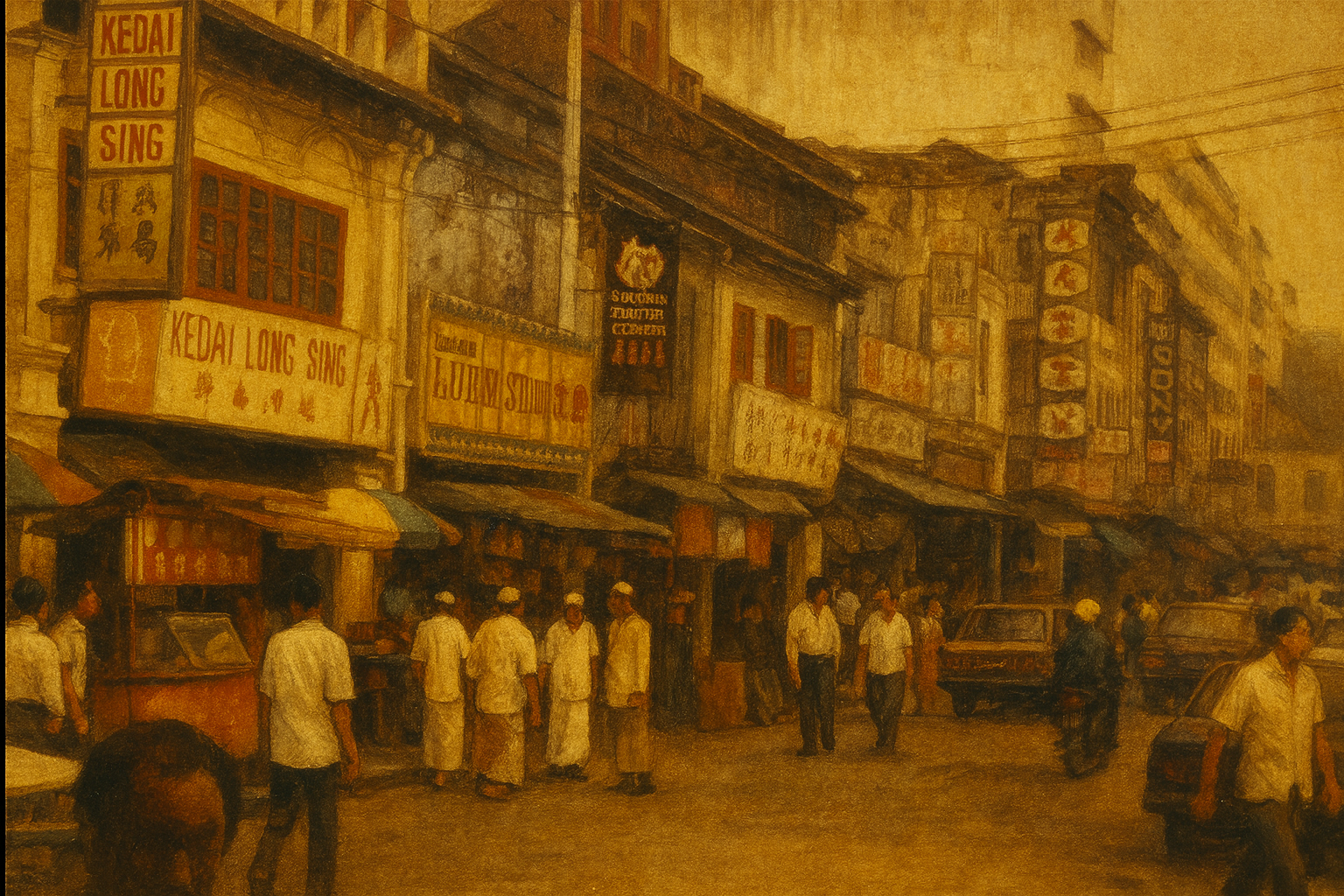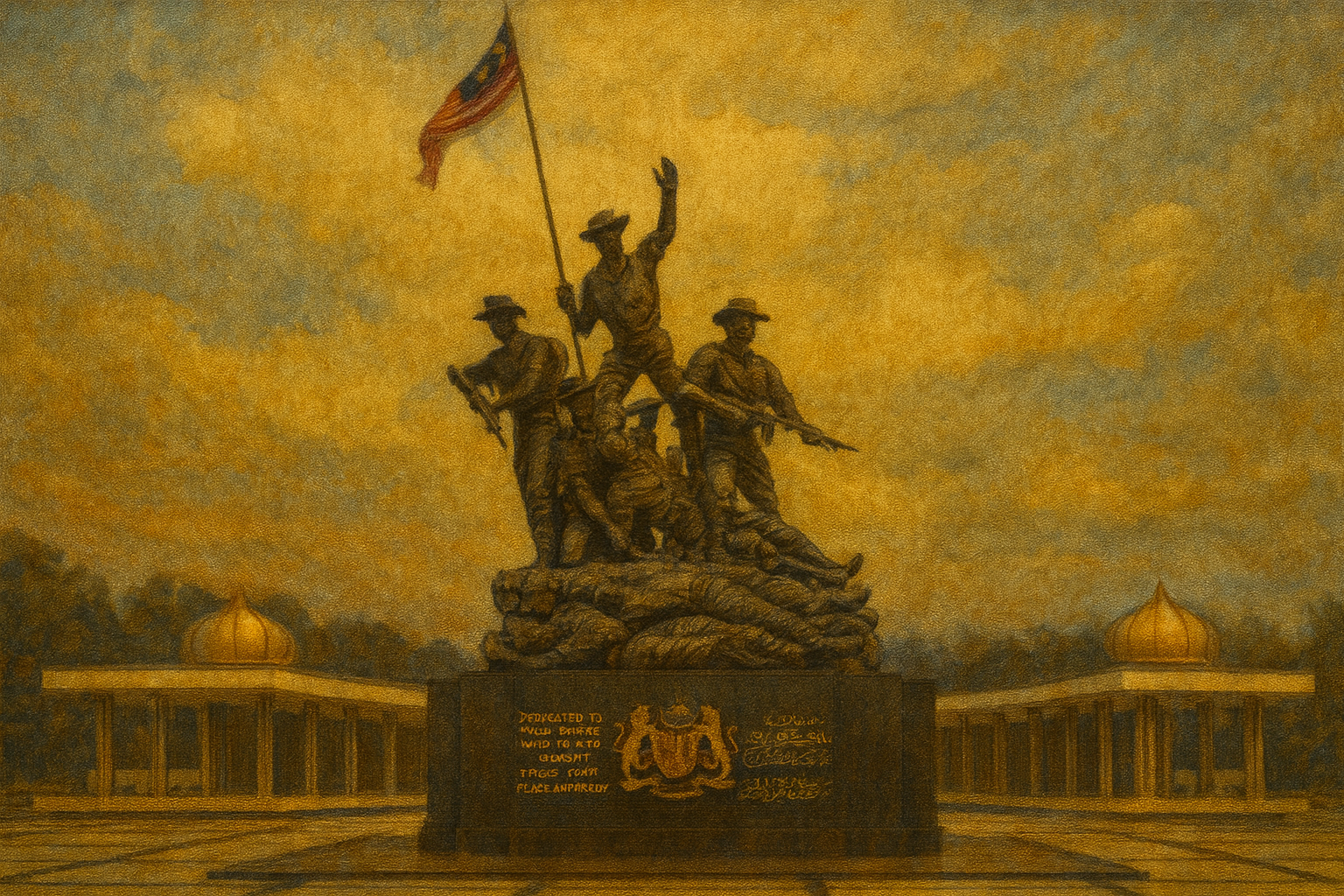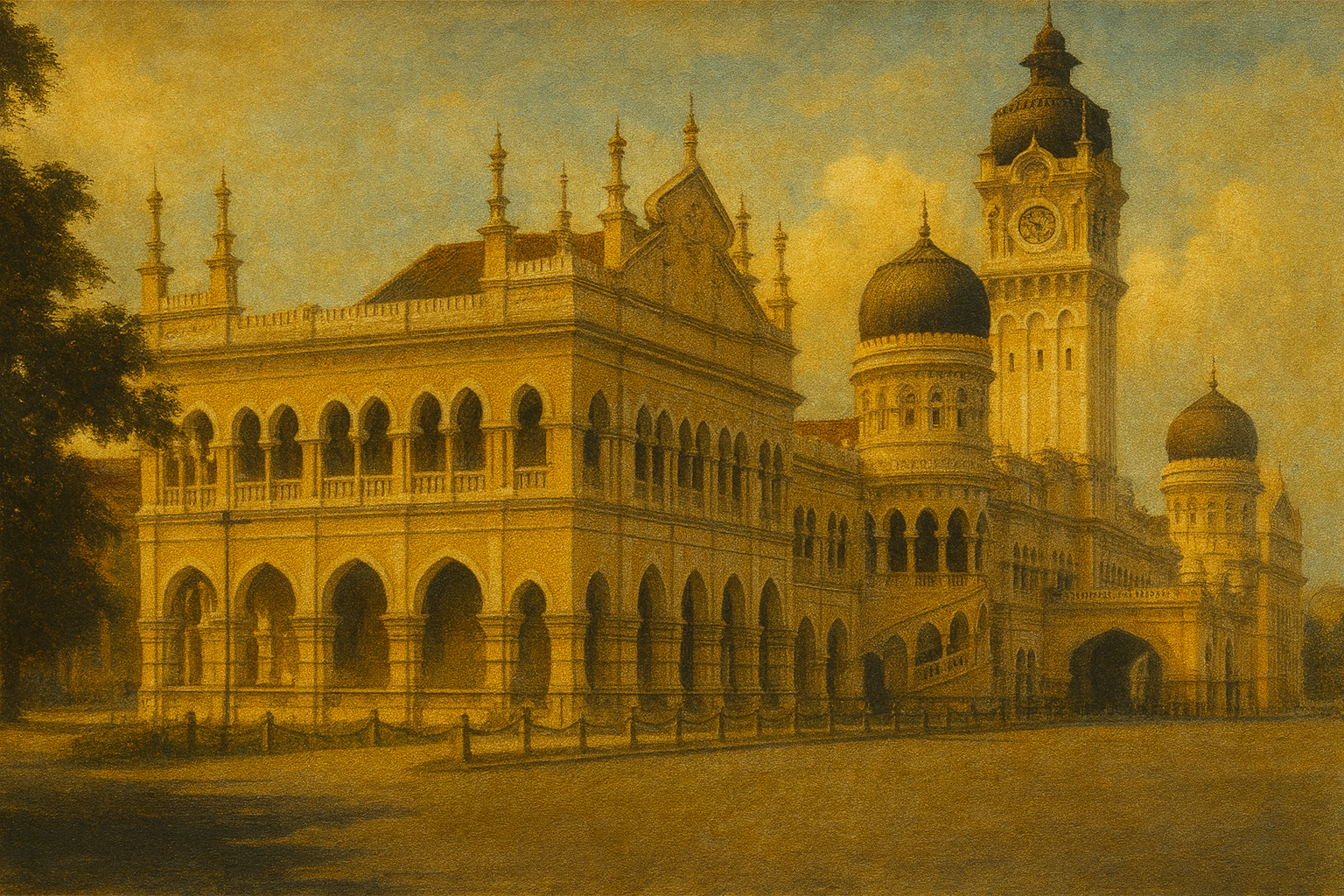1974
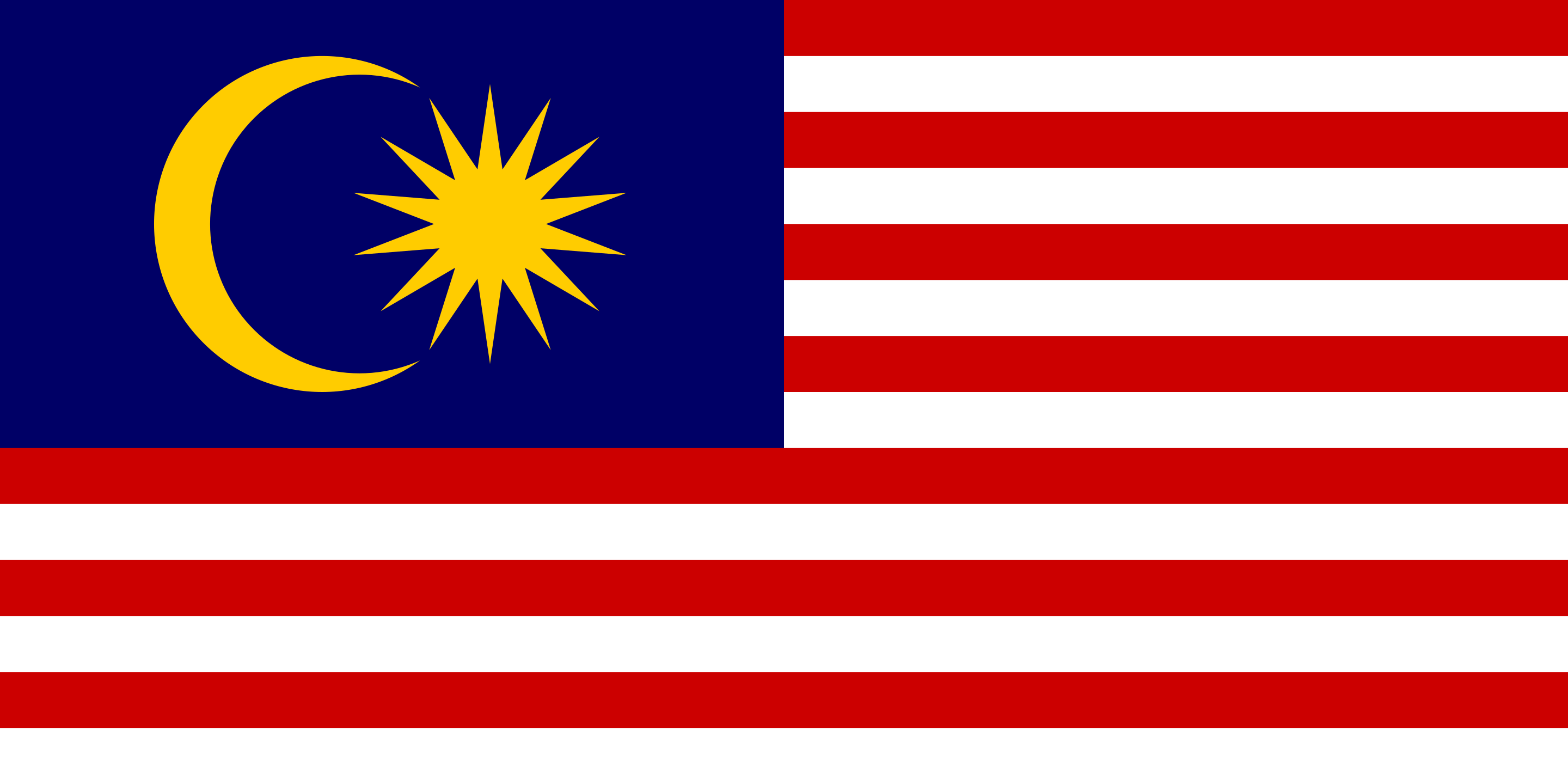
| Currency Rate to USD | 2.5 |
| GDP Per Capita (USD) | 847.8 |
| Population (millions) | 11.2 |
| Nasi Lemak Price | 70 cents |
| Teh Tarik Price | 32 cents |
| Urban Population Percentage | 30.8% |
New Economic Policy Era
After racial riots in 1969, the government launched the NEP to reduce poverty and economic disparity, especially among Malays and indigenous folks.
Cold War
After WWII, the world splits into blocs—capitalist West led by U.S., communist East led by USSR. People everywhere feel the pressure: fear of nuclear annihilation, propaganda, ideological influence in media and education, proxy wars in Asia, Africa and Latin America.

Establishment of Kuala Lumpur as a Federal Territory
On 1 February 1974, Kuala Lumpur was established as a Federal Territory of Malaysia through an agreement between the federal government and the state of Selangor, marking its separation from Selangor and direct governance by the federal authorities to support national unity, administrative efficiency, and urban development in the capital.
7th Annual Meeting of the Asian Development Bank in Kuala Lumpur
The 7th Annual Meeting of the Board of Governors of the Asian Development Bank (ADB) took place in Kuala Lumpur from 25 to 27 April 1974, marking a significant moment in Malaysia's emergence as a key player in Asian economic collaboration and development initiatives.
Malaysia Establishes Diplomatic Relations with the People's Republic of China
On 31 May 1974, Malaysia established diplomatic relations with the People's Republic of China, becoming the first ASEAN nation to recognize Beijing over Taiwan, marking a pivotal shift in its foreign policy toward non-alignment and pragmatic engagement with communist states.

Death of Sultan Abu Bakar Ri’ayatuddin Al-Mu’azzam Shah of Pahang
The death of Sultan Abu Bakar Ri’ayatuddin Al-Mu’azzam Shah on 5 May 1974 marked the end of a 42-year reign that provided stability to Pahang during Malaysia's transition from colonial rule to independence, paving the way for his son Sultan Ahmad Shah's ascension.

Formation of Barisan Nasional
The formation of Barisan Nasional (BN) in 1974 was a pivotal political reconfiguration in Malaysia, expanding the Alliance Party into a broader coalition to address ethnic tensions following the 1969 riots and promote national unity under Tun Abdul Razak Hussein's leadership.
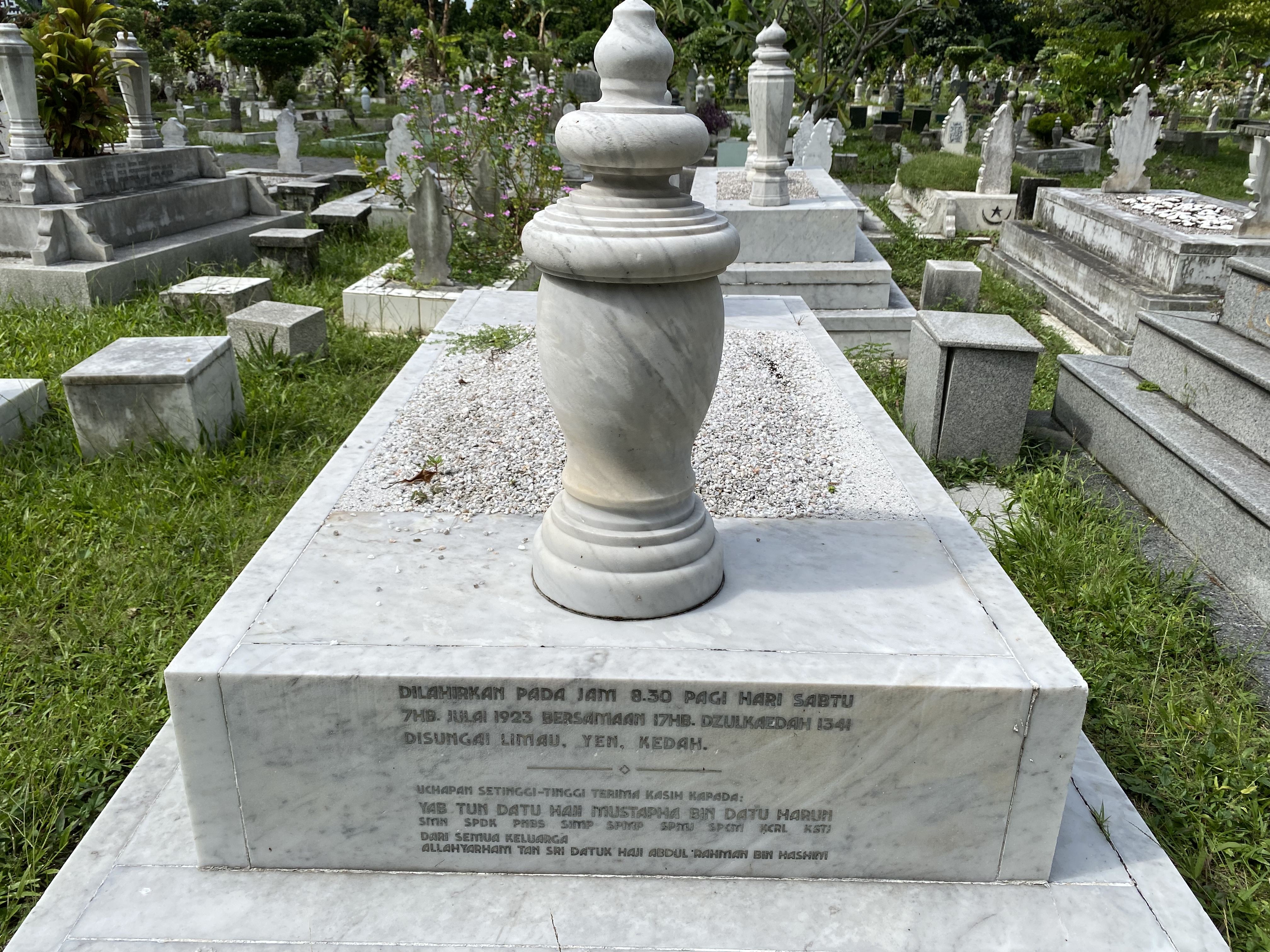
Assassination of Inspector General of Police Tan Sri Abdul Rahman Hashim
The assassination of Tan Sri Abdul Rahman Hashim, Malaysia's third Inspector-General of Police, on 7 June 1974 by communist insurgents marked a violent escalation in the second phase of the communist insurgency, highlighting vulnerabilities in the nation's security apparatus during a period of post-independence consolidation.
Incorporation of Petronas
The incorporation of Petroliam Nasional Berhad (PETRONAS) on 17 August 1974 marked a pivotal shift in Malaysia's energy sector, establishing the national oil company with exclusive ownership of the country's oil and gas resources, promoting resource nationalism and economic independence.
1974 Malaysian General Election
The 1974 Malaysian general election was a landmark event that saw Barisan Nasional achieve a resounding victory, capturing 135 of 154 parliamentary seats and securing a supermajority to advance the New Economic Policy amid efforts to promote national unity following the 1969 racial riots.

Malaysia at the 1974 Asian Games
Malaysia participated in the 1974 Asian Games in Tehran, Iran, earning five bronze medals in football, field hockey, athletics, shooting, and weightlifting, finishing 17th in the medal table and highlighting the nation's growing prowess in regional sports.



